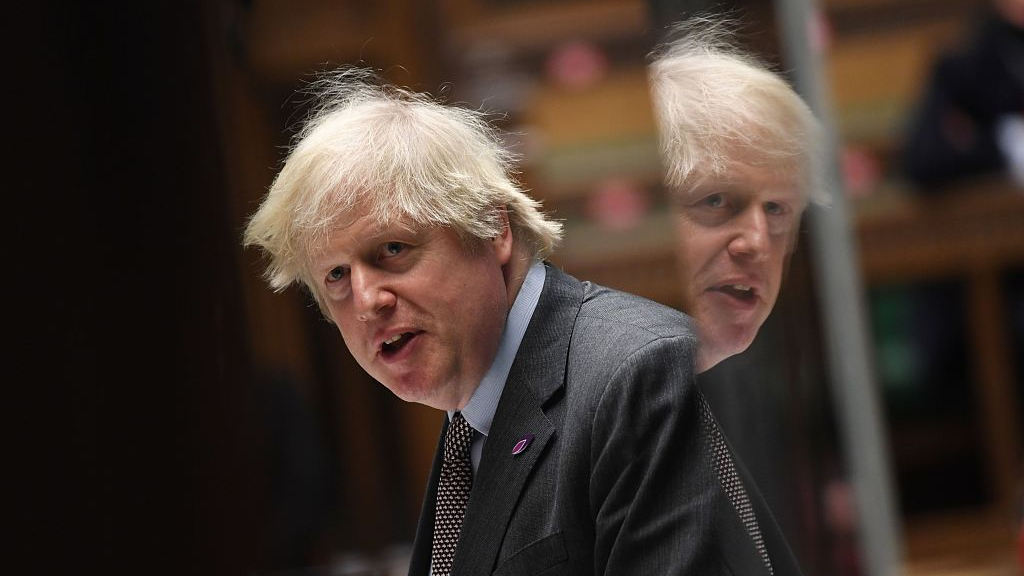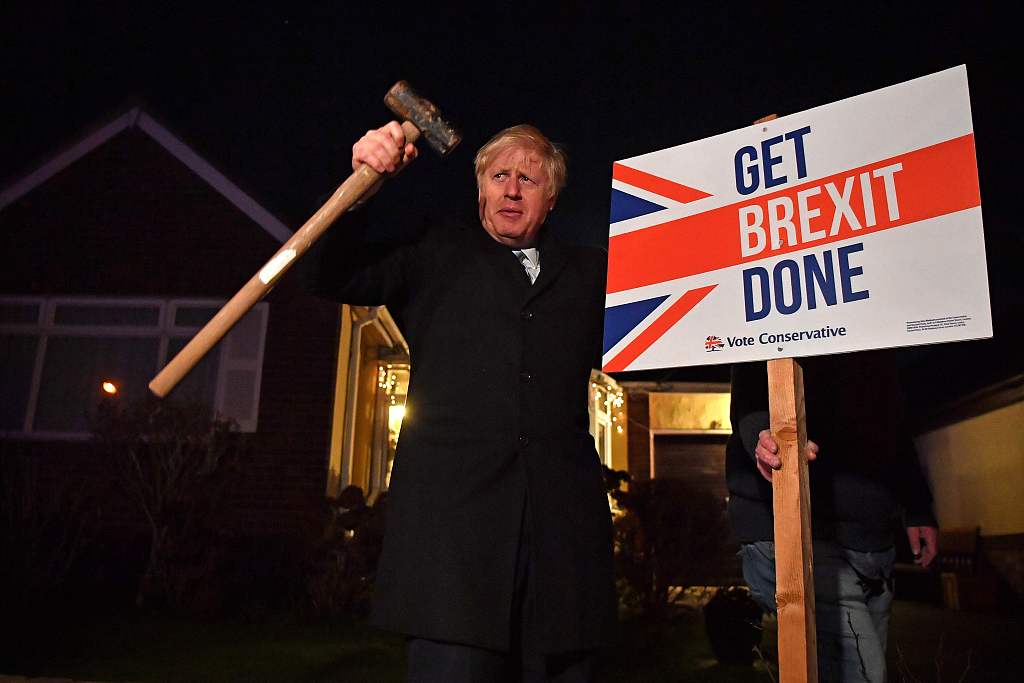
UK Prime Minister Boris Johnson. /CFP
UK Prime Minister Boris Johnson. /CFP
Editor's note: Mike Cormack is a political analyst, cultural commentator and opinion writer from the UK, who has lived in China for over eight years. The article reflects the author's opinions and not necessarily the views of CGTN.
First, during the 2019 UK General Election, Boris hid in a fridge, so as to avoid reporters. This past week he had been hiding behind an enquiry on lockdown parties, arguing that he could not comment lest he prejudice the investigation. Now, even after the report findings of "failures of leadership and judgment," Boris is hiding behind a police investigation into the same lockdown parties at No. 10 Downing Street, saying critics must wait until the police determine their course of action.
This is an extraordinary state of affairs. But then Boris is no ordinary politician. He might have twice won the election as mayor of London and led the Conservative party to their biggest General Election win since the days of Margaret Thatcher, but his personal and political weaknesses were clear from the outset. He was known to have a troubled relationship with the truth, from twice being sacked for lying (as a journalist and as a minister) to the various outsized claims of the Vote Leave campaign he led (such as leaving the EU would "free up" 350 million pounds a week for the National Health Service).
But following the UK's tortured Brexit negotiations with the EU – which pro-leave ministers had promised would be "the easiest in human history" – first the Conservative party and then the country as a whole fell for Boris' boosterism. The whole thing was easy, he claimed. He had a plan. Just vote for him, he said, and he would get Brexit done.

Boris Johnson poses with a sledgehammer next to a "Get Brexit Done" sign in South Benfleet, Britain, December 11, 2019./CFP
Boris Johnson poses with a sledgehammer next to a "Get Brexit Done" sign in South Benfleet, Britain, December 11, 2019./CFP
So the UK did just that, granting the Conservative party a majority of 80 seats – their largest since 1987 and the heady days of Thatcher's third victory. Boris stood triumphant, the strongest prime minister in perhaps 40 years, finally taking the UK out of the EU and looking set for perhaps a decade in power.
How quickly the tide can turn in politics. There were early intimations of Boris' unsuitability for the top job, to be sure, but an 80-seat majority insulates prime ministers from all but political foolishness. Slowly but surely, however, Boris squandered all of his political capital: firing his first finance minister; sacking his political advisor, Dominic Cummings, who since then has sought vengeance like an inexorable Terminator; becoming embroiled in a row over the refurbishment of No. 10 Downing Street; trying and failing to change the discipline code for MPs, then losing a subsequent by-election.
Boris might have survived all of these. All were self-inflicted but unlikely to be fatal. But when it transpired that there had been numerous drinks parties at No. 10 Downing Street, in contravention of the lockdown rules he himself had enforced since March 2020, the country was genuinely furious. The British people had suffered a great deal of personal difficulties and trauma during lockdown: relatives unseen, funerals unattended and hospitals unvisitable, amidst the greatest restrictions to personal freedom ever seen in peacetime.
And what were Boris and chums doing? Holding parties in the garden and offices of No. 10 Downing Street. Yet as proof of these events leaked out to the public, Boris as always dissimulated and dissembled. There had been no such events, he said. He had not attended any such events, he said. If there were any such events, all guidance had been followed, he said. He might have attended briefly, but he thought it was a work event. Nobody told him such events were against the rules, he said. A civil servant would investigate the matter, he said, and not wishing to prejudice their enquiry he could say nothing more.
Yet when an update to the investigation came, noting "failures of leadership and judgment" and "a serious failure to observe not just the high standards expected of those working at the heart of government but also of the standards expected of the entire British population at the time," Boris refused to buckle. After a day or two of shame-faced contrition, he swung instead to attacking anyone who dares question him.
So we have the grim spectacle of a prime minister clinging to the post by his fingernails, who is under police investigation, and who may well be fined for breaking the rules he himself had set. A number of Conservative MPs have gone public with their anger for his contempt for the rules and demanded that he resign. But the larger question is, how can a man like him be held to account? Boris has made a career out of flouting the rules. In some way, he degrades the office of prime minister, but his limitations were clear long before he achieved the job. His political colleagues might reflect that every moment Boris is in office also damages them, who put him there, as well as the entire United Kingdom.
(If you want to contribute and have specific expertise, please contact us at opinions@cgtn.com.)

